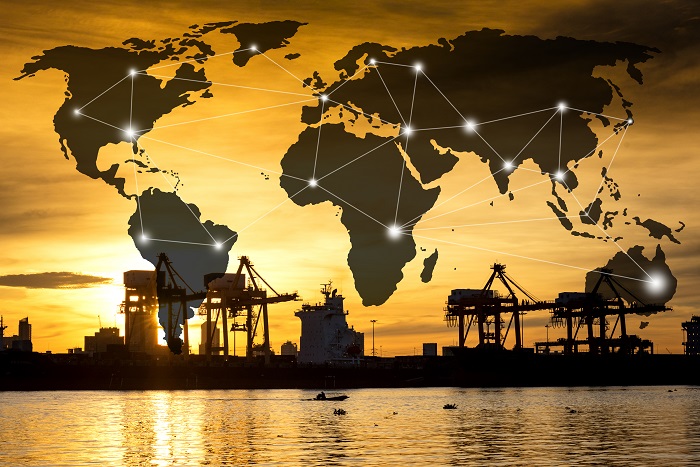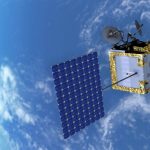The shipping industry is adjusting to the modern trend with smart ship technologies to enhance marine operations as the world moves toward a higher level of autonomy. The Internet of Things (IoT), data analytics, and autonomous and predictive ship technology all constitute contemporary elements that businesses and the marine sector as a whole should aim towards.
Indeed, technology in day-to-day life can make things more convenient, from knowing where you need to take an umbrella or keeping in touch with people in remote locations. So how does this translate to the maritime environment? In the maritime industry, the use of technology can revolutionise communication and effectiveness, enhancing safety, control, and positive outcomes for everyone involved in cargo operations. At Dan Shipping, we explain how ship brokers can leverage technology and communication to streamline operations.
The role of communication in cargo operations
The SOLAS Convention plays a vital role in establishing the importance of communication as part of cargo operations. Indeed, since July 1st, 1998, it has been mandatory to:
File the operation plan, including all revisions thereto, with the relevant port authority
Ensure the cargo operations are performed following the agreed plan. This is the responsibility of both ship owners and the port representative(s).
In many chartering scenarios, the ship brokers act on behalf of their clients, the owners. Therefore, effective means of communication must be established between the ship and the port authority throughout cargo operations, including during the time when the ship is not at port.
The purpose of communication during cargo operations
As mentioned, communication must ensure that the operation plan is known, understood, shared, and followed. Therefore, every step of the communication protocol between the ship agent and the port authority must establish an orderly procedure, including reporting on potential damage before the start of the cargo operations.
This is designed to guarantee safety through the step of berth and unberth, and load or unload of a vessel.
How to communicate effectively in the maritime sector
Ineffective communication can lead to ambiguity and confusion, which can cause cargo operation issues and incidents. However, some crew members speak different languages, so it becomes essential to agree on a common one for communication clarity purposes. This is why our ship brokers use Maritime English to convey messages clearly.
Standard Maritime Communication Phrases, or Maritime English for simplicity, stand as the standards for all maritime communication, as set by the IMO (the International Maritime Organization).
How technology can support cargo operations communication
Technology and communication go hand-in-hand in more than one way.
Maintaining Internet and data communication at sea
Shipping businesses may now connect their ships within their own overall IT networks thanks to the communication infrastructure currently used in the maritime industry.
Terrestrial networks and satellite communication systems are available to and used by the maritime and transportation sectors; their accessibility has made it possible to use the internet, web-based procedures, and the potential for real-time information flow. The many forms of communication depend entirely on where you are. Wireless and VSAT technology are showing promises for the maritime industry, ensuring information can be delivered to and from ships at sea regarding weather predictions, position reports, and other messages essential to operations. More and more ships are looking to adopt VSAT technology for two-way communication, regardless of their position at sea.
IoT and automated notifications on board
With the use of their phone or a centralised control system like a remote, consumers can operate commonplace devices thanks to the Internet of Things (IoT). This implies that users can tap a button to move doors, open windows, and turn electrical systems on and off.
Since this technology enables remote control of functions that would usually need human presence, it has enormous potential applications in the shipping industry. Indeed, passengers or crew members could access functions via an app, allowing for automated control or even a data-collecting system. Sensors can inform the crew that someone onboard needs medical assistance. Depending on the gravity, the system could notify the closest port authority.
Figuring out where ships are
Ship agents and port authorities rely on technology such as MarineTraffic, a vessel tracking solution, to gain real time information on the locations of ships in parts and their movements at sea.
This can serve many communication purposes when it comes to managing safe cargo operations. Indeed, knowing the exact ship location at any time can help define the ETA of a vessel at port. Ship technology is instrumental in updating the position and therefore ensuring that communication can remain clear between all parties.
Knowledge of the exact position is also advantageous when a ship experiences issues and needs rescuing or external services. This will avoid the loss of a vessel and countless lives on board, for instance. Even for crewless ships, the environmental damages of a lost vessel can be avoided through accurate ship position reporting.
Understanding tides and currents
Tidal prediction technology is designed to measure and predict tidal patterns. In the maritime industry, tidal knowledge can be instrumental in guaranteeing safe cargo operations for coming in and out of ports. Additionally, offshore cargo operations are also dependent on tides and currents, especially when it comes to avoiding or controlling oil spills or preparing for emergency situations at sea.
Tidal technology connects to cargo operations in different ways. A ship agent and the port authority can decide to amend the operation plan based on the predictions. The plan must be communicated in real time to the ship and the port.
Furthermore, as predictions can be affected by different factors, new reports must be communicated in real time with all the parties involved by the ship broker.
Real time weather reports and navigational warnings
Extreme weather at sea can have dramatic consequences. This is precisely where ship owners receive maritime safety information (MSI) provided by the MCA (the Maritime & Coastguard Agency). The communication here focuses on ensuring the safety of the ship through essential reports that can affect its route and operation plan:
- Weather forecasts
- Meteorological warnings
- Navigation warnings
- Other urgent safety-related information
Technology ensures that these warnings can be received and applied in real time. This can affect the further cargo operations plan, for example.
Source: Hellenic Shipping News






